Get Your Dog into Duke
Enroll to have your dog’s intelligence tested or help raise puppies at Duke’s Canine Cognition Center
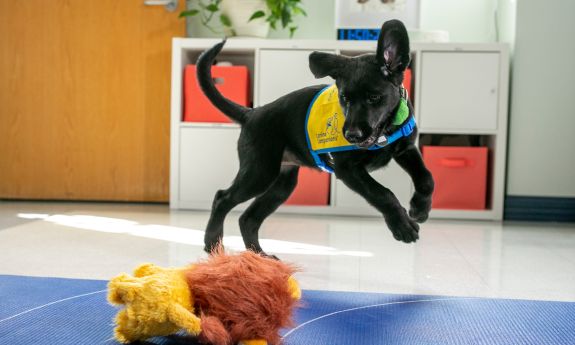
One of Véronique Koch’s first assignments as a science videographer at Duke five years ago was to play with puppies.
Koch never forgot how fun it was to produce a video about Duke’s Canine Cognition Center and Puppy Kindergarten, and for the past few years, she and co-workers occasionally took mental health breaks to snuggle with puppies who were part of a longitudinal study run by researchers Brian Hare and Vanessa Woods since 2009.
Koch saw an opportunity to become more involved when she stumbled across a social media post asking for Durham and Duke community members to serve as a puppy raiser – someone who would host a future service dog in their home for about three months until the dog is old enough to move onto the next training phase.
And that’s how a black, fluffy Labrador-golden retriever mix named Nando ended up in the home of Koch and her two sons last summer.
“I wanted to prepare them for the fact that this is not our dog that we have a big responsibility in raising this dog to help someone else later down the line,” Koch said of her sons Vincent and Leon. “I was prepared for the fact that there could be some heartbreak at the end when he would graduate to move on, but they understood that right away. And they quite enjoyed telling people in the street, ‘He's gonna be a service dog!’”
Raising a puppy for just three or up to 18 months is one way to help with the Canine Cognition Center’s research. You can also get your dog into Duke and discover just how smart it is.
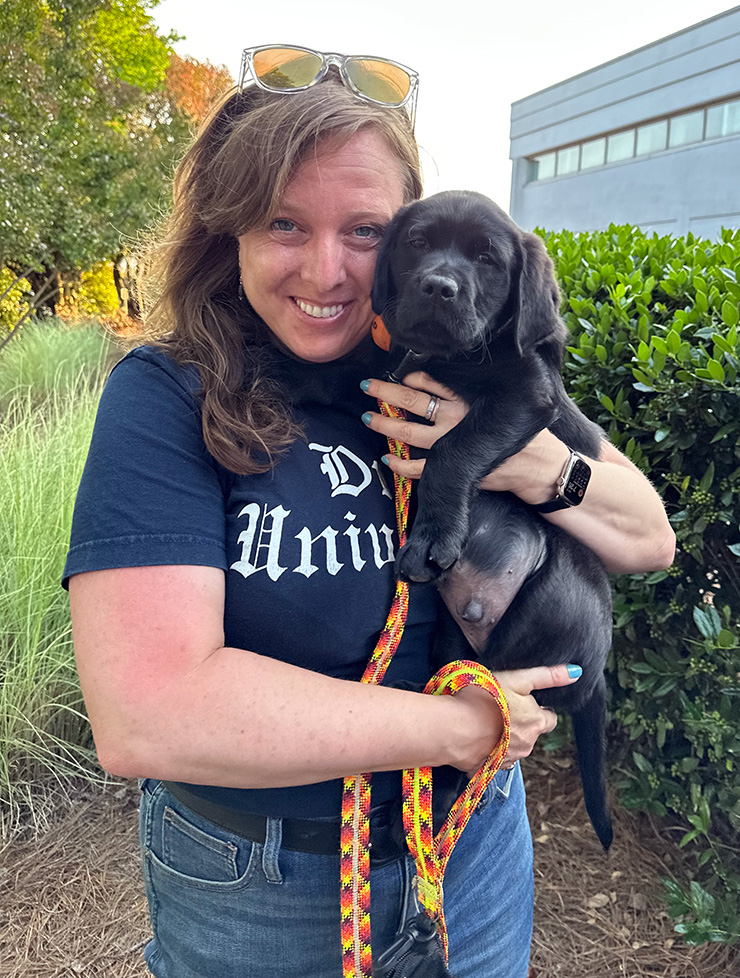
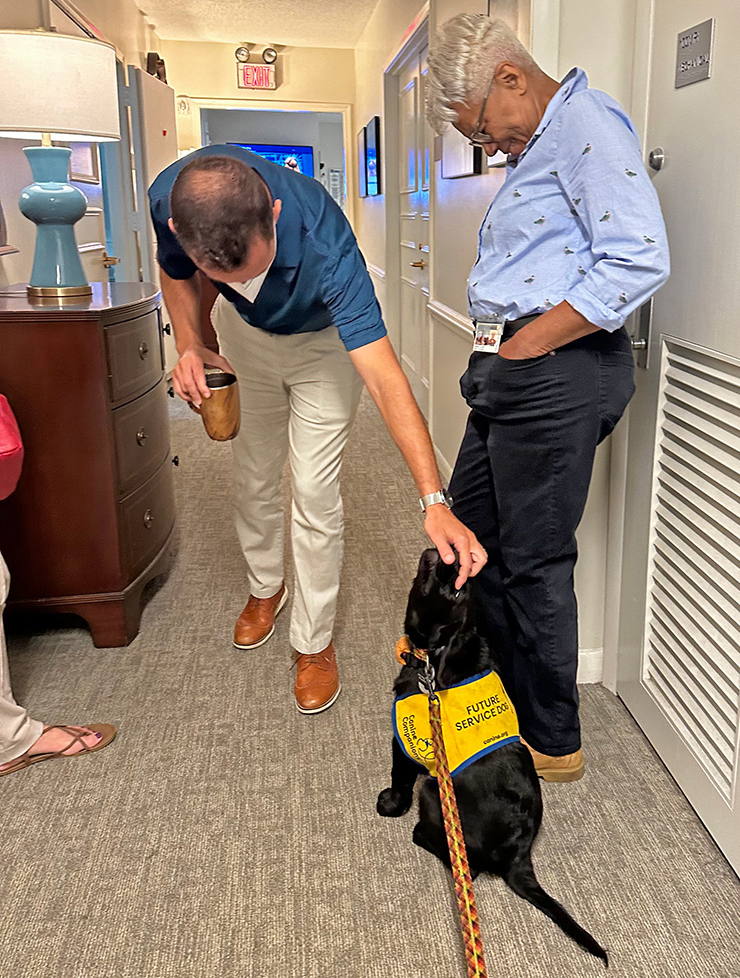
How to get your dog into Duke
Brian Hare remembers giving an interview soon after launching Duke’s Canine Cognition Center where he boasted “we have the cheapest tuition and the highest acceptance rate at Duke.”
That’s still true.
Anyone can volunteer to have their dog’s intelligence measured by filling out a simple form. The dog then enters a database of about 1,000 canine volunteers that Hare and Vanessa Woods use to pull for specific characteristics needed depending on the project – things like ages, weights or qualities.
Dogs often are tested on characteristics such as following commands, providing eye contact and solving problems.
“One of the really fun findings that we've had is that there's not just like a general measure of intelligence – it’s these multiple intelligence factors that we found in dogs and puppies,” Woods said.
Much of the research involves trying to determine cognitive abilities that might eventually lead to a higher graduation rate of service dogs. Currently, about 50% of dogs matriculate from any service training program.
“The goal is to increase the graduation rate, with the ultimate goal of having more service dogs available to do all the amazing jobs that dogs do,” Hare said.
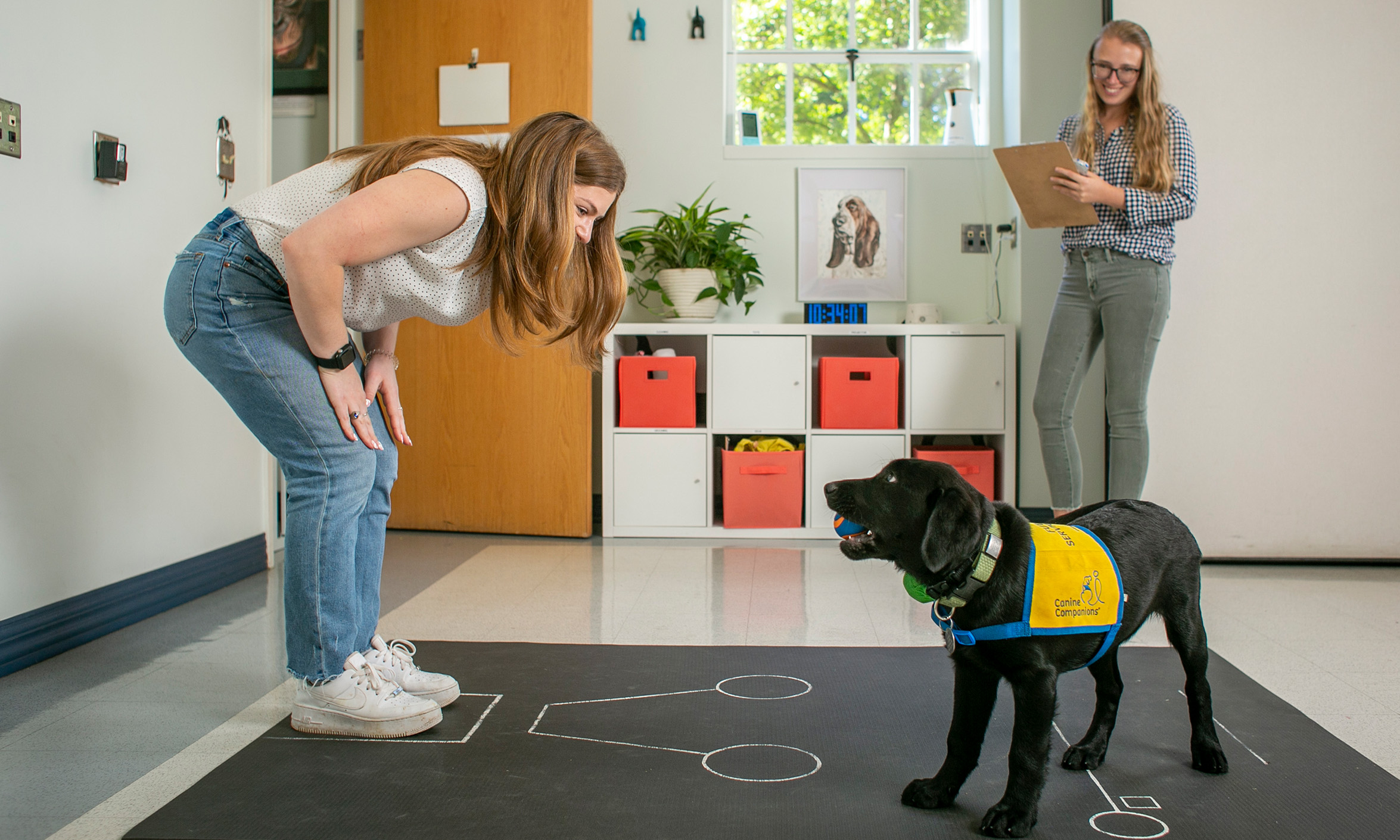
And there has not been a shortage of canine volunteers.
“It's been one of the really exciting things about the whole project since its inception in 2009,” Hare said. “It's all voluntary, and everybody loves to bring their dog in. It's just been a fun thing and people enjoy it.”
How you can help Duke’s Puppy Kindergarten
Véronique Koch knew what she was signing up for when she volunteered to be a puppy raiser for Canine Companions.
“These are some of the smartest dogs of the dog world, but they’re still puppies,” Koch said.
That meant housebreaking Nando, of course. And crate training him. Teaching him to walk properly on a leash. And regular puppy training sessions and vet visits.
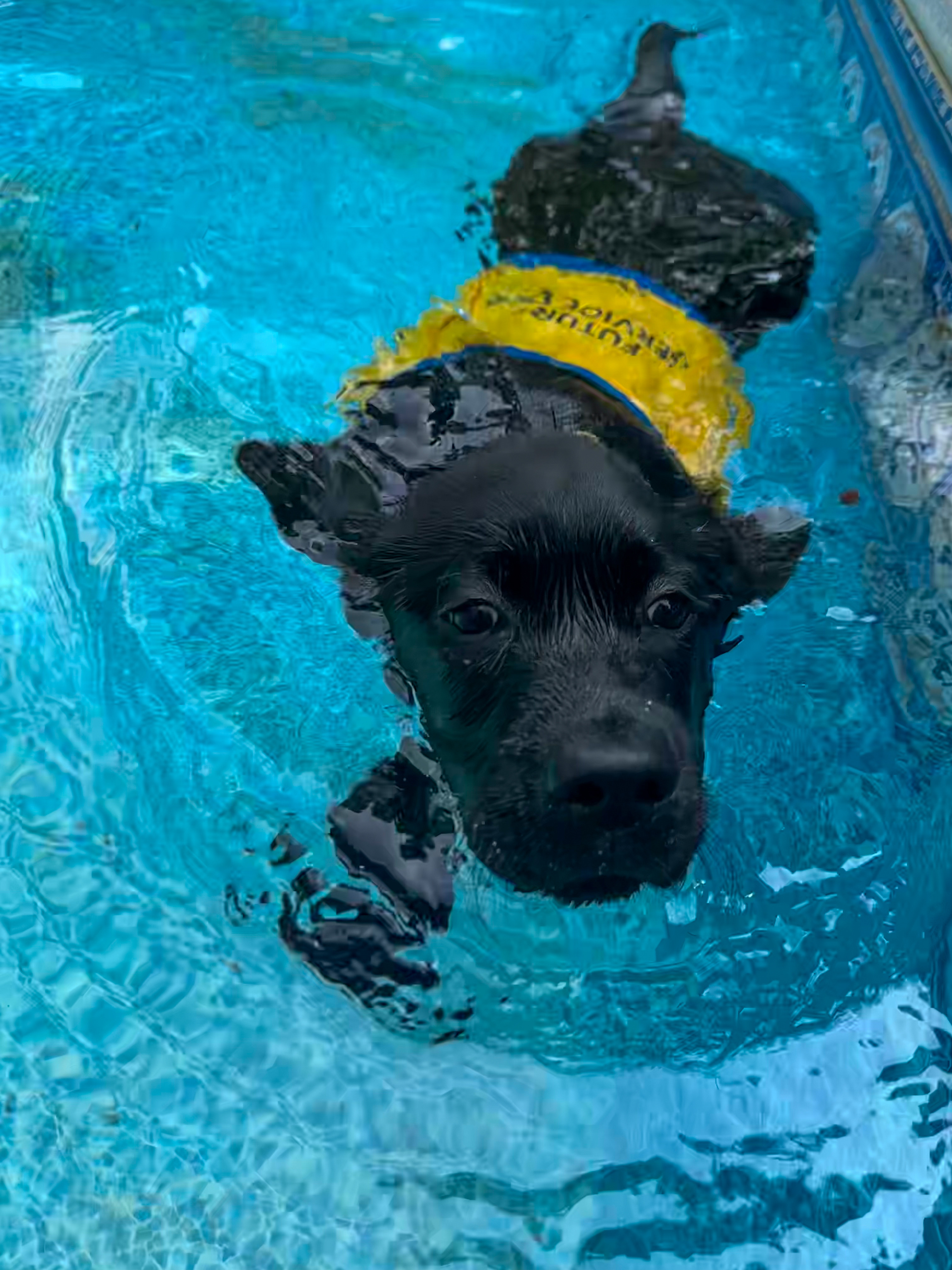
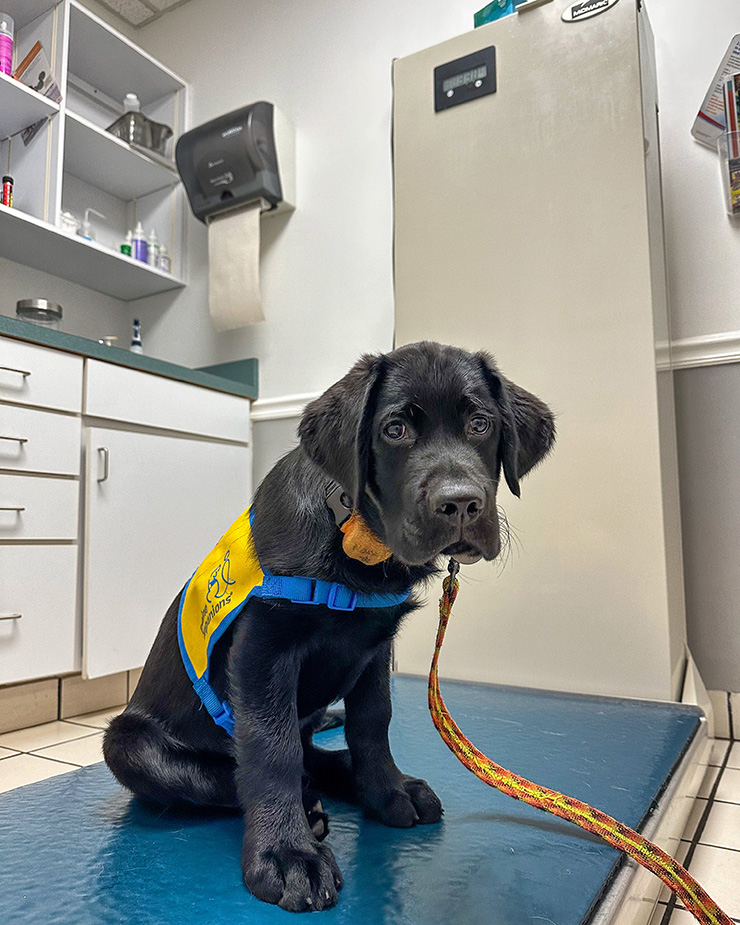
Koch and her sons also had to make sure that Nando was socialized in various environments, so he went to work with her, they took him to the movies and to Target.
The whole time, they knew that if they succeeded, Nando would graduate to canine college and eventually be someone’s service dog. If Nando failed, though, Koch and her family would have the right to adopt him as a family pet. That led to Vincent, then 8, and Leon, then 11, joking they should sabotage the furry, black puppy’s training.
“But he was way too smart for that,” Koch said. “He just he wanted to learn everything so badly.”
To help ease the transition, Vincent and Leon received black stuffed animals with little service dog vests when Nando moved on, and the last update Koch heard is that Nando was on his way to canine college.
“We had very mixed feelings about him going on,” Koch said. “You can't help but fall in love with a puppy. He was a big part of the home. But we were also very proud of him.”
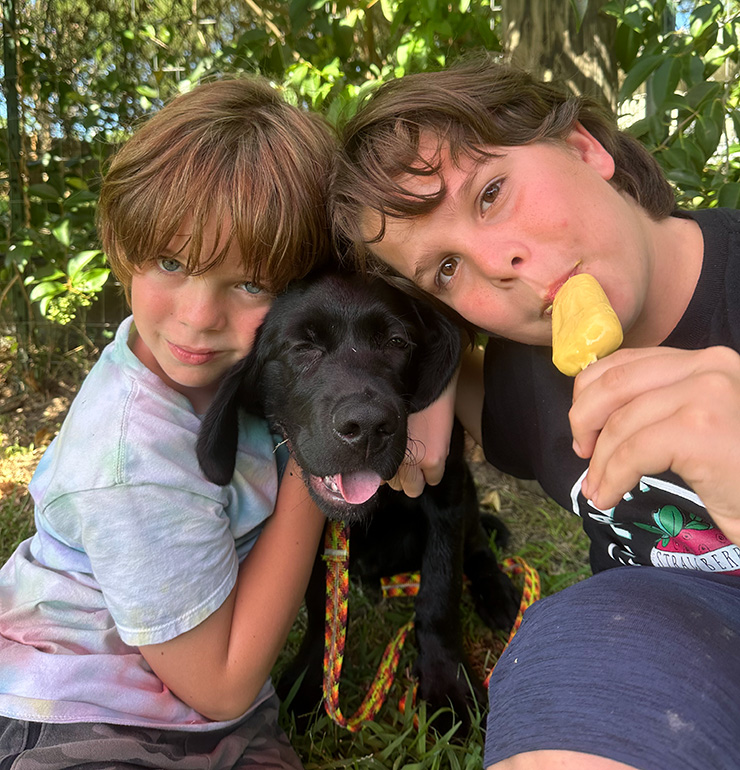
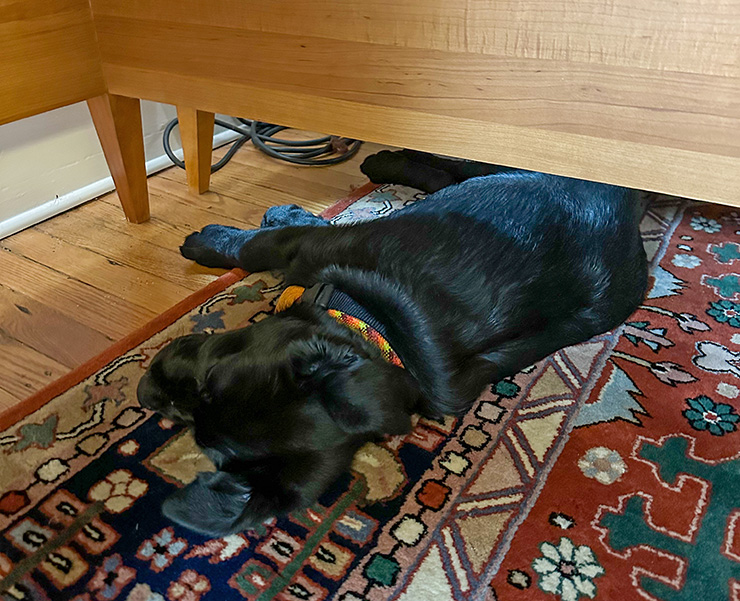
Share your dog pics – and you may get a copy of Hare’s and Woods’ new book
Hare’s and Woods’ third book, “Puppy Kindergarten: The New Science of Raising a Great Dog” is based on their research from Puppy Kindergarten and comes out Aug. 27.
For a chance to win a copy of the book, check out Working@Duke on Instagram to enter our drawing.
Working@Duke is also celebrating International Dog Day on Aug. 26. We want to see your dogs (at work or not!). Head to our Facebook post to share a photo of your pup – and tell us a bit about them in the comments.
Through Aug. 31, use the code PUPPY on the Tertulia book page to get 25% off the book “Puppy Kindergarten: The New Science of Raising a Great Dog” by Hare and Woods.
“Inside the Mind of a Dog” is out on Netflix and features Hare, Woods and the Duke Canine Cognition Center.
Send story ideas, shout-outs and photographs by writing working@duke.edu.
Follow Working@Duke on X (Twitter), Facebook and Instagram and subscribe on YouTube.